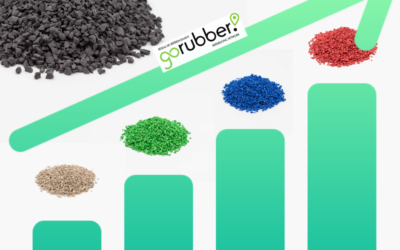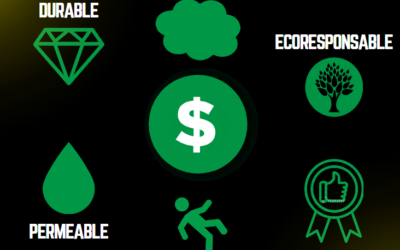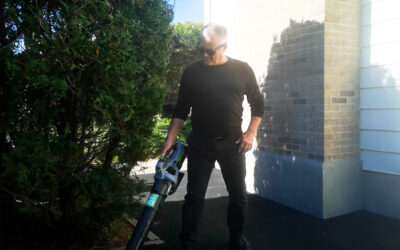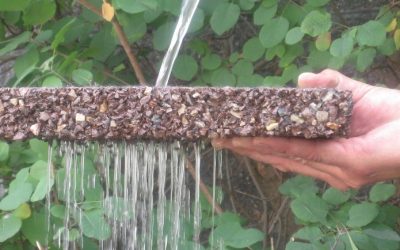Why rubber paving is perfect for the Canadian climate versus traditional asphalt paving
Rubber paving : a durable, weatherproof solution for our Canadian winters
A good paving option should be weather resistant, solid and flexible enough to endure freeze thaw cycles without breaking or tearing. Most homeowner in Canada with a pavement made of asphalt have observed that wear and tears occurred after a harsh winter. Fortunately, one product has proven himself to have what it takes to confront our weather challenges headfirst: Rubber Paving. If you never heard of it before you can read this article to know more about this type of application.
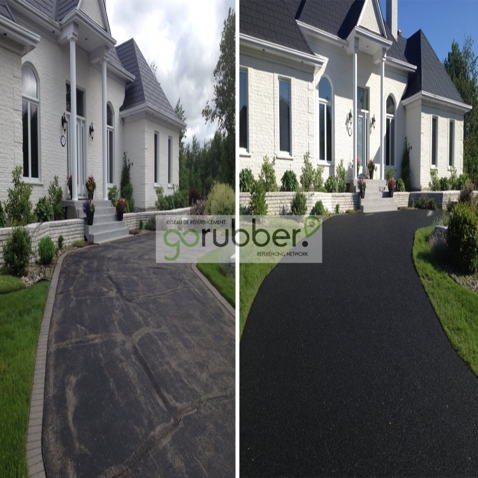
Increased durability and reduced repair costs: the benefits of ecopaving
Rubber paving is porous and flexible, making it resistant to freeze-thaw cycles
Does ice stick on rubber paving?
In addition to being resistant to cold temperatures, one characteristic cause homeowners to drool about rubber paving during winter: Ice doesn’t stick on it! Read it Again. Ice can’t stick to rubber paving, that’s right. This alone makes homeowners make the switch from traditional asphalt to rubber paving. If you haven’t seen the video check it out: shoveling rubber vs concrete. During winter, you don’t need to use salt to melt the ice on your paving. Just break it, remove it and the job is done. Lastly, Rubber is a product that is smooth, skid-resistant and softer which can greatly reduce the risk of slipping, and the risk of injury during winter.
Finding an rubber paving installer near you is easy with our online platform
Any more questions?
We invite you to read our other Blogs to learn more about poured-in-place rubber installs.



